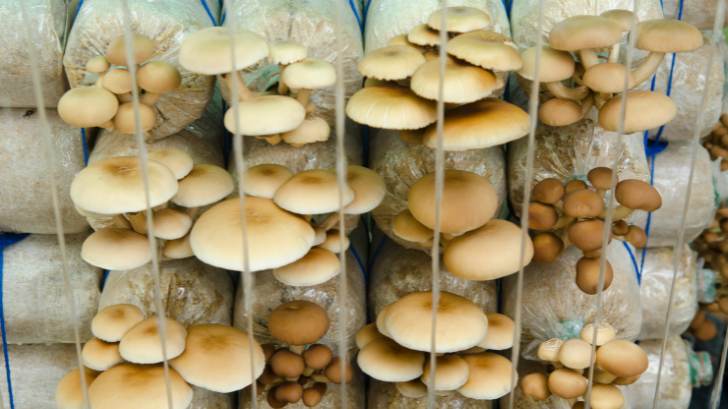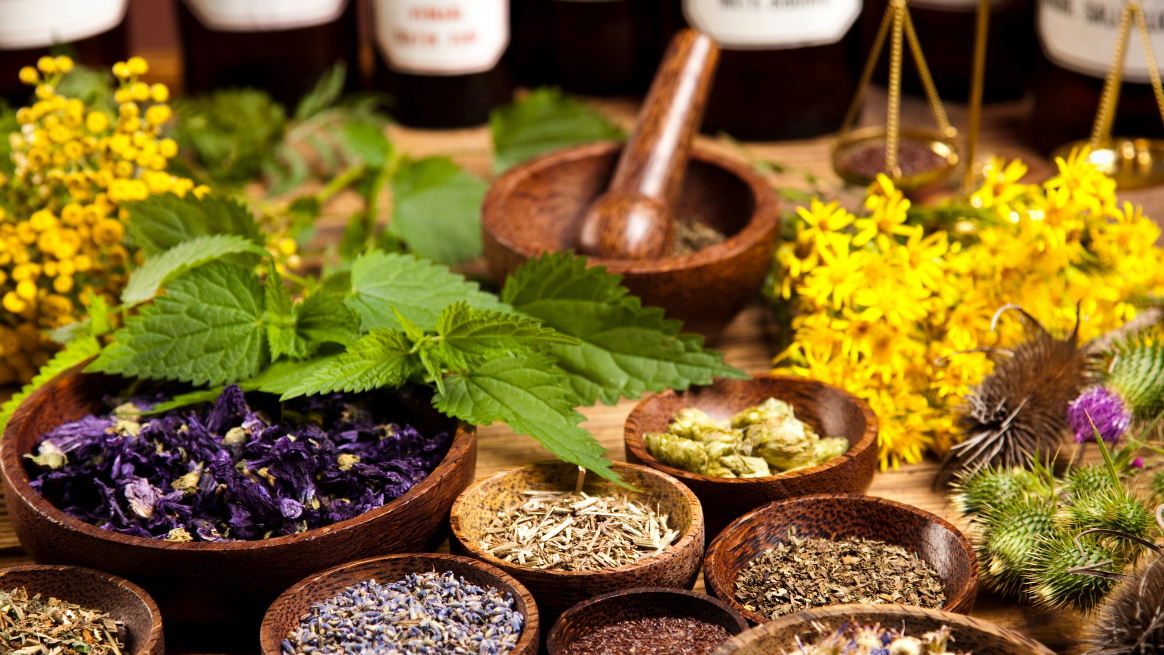

From the humble button mushroom to the exotic shiitake, mushrooms are a culinary delight across the globe. With a growing demand for gourmet varieties and the rising interest in sustainable, local agriculture, there has never been a better time to venture into the lucrative world of mushroom farming. This guide will walk you through how to grow mushrooms for profit. You could potentially earn a substantial income of over $60,000 annually.
Grow Mushrooms For Profit – The Lucrative World of Gourmet Mushrooms
Gourmet mushrooms are a coveted ingredient in many cuisines, appreciated for their unique flavors, textures, and health benefits. Varieties like oyster, shiitake, and lion’s mane are in high demand, fetching a good price at farmers’ markets, restaurants, and specialty grocery stores.
By growing 12,000 pounds of mushrooms annually and selling them at $5 per pound, you can gross $60,000, making it a potentially lucrative venture for those willing to invest their time and energy.
Starting Your Mushroom Farming Journey


Embarking on the journey of mushroom farming requires a strategic approach. From selecting the right variety to finding a market for your harvest, every step plays a crucial role in your venture’s success.
Step 1: Choosing the Right Mushroom Variety
Selecting the right mushroom variety is the first step towards setting up your mushroom farm. The choice of variety should be guided by several factors:
- Local Demand: Research the types of mushrooms that are popular in your area. Are certain varieties favored by local chefs or home cooks? Are there varieties that are hard to find in local stores?
- Growth Requirements: Different mushroom varieties have different growing requirements. Some mushrooms prefer certain substrates or climates, which might make them more or less suitable for your situation.
- Market Price: Some mushroom varieties are more profitable than others due to their high market price. These often include exotic or gourmet mushrooms, such as shiitake or oyster mushrooms.
Step 2: Setting Up Your Growing Space
Once you’ve chosen your mushroom variety, the next step is setting up your growing space. This is an important step as mushrooms have specific environmental needs:
- Location: Mushrooms need a dark, humid space to grow. This could be a basement, a shed, a greenhouse, or even a dedicated room in your house. The space should be easily cleanable, as maintaining cleanliness is crucial to avoid contamination.
- Climate Control: You will need to control the temperature and humidity in your growing space to create optimal conditions for your mushrooms to thrive.
- Ventilation: Mushrooms also require fresh air exchange to grow well. This can be achieved through natural or mechanical ventilation.
Step 3: Procuring Quality Spores and Substrate
After setting up your growing space, the next step is to procure your spores and substrate:
- Spores: Quality spores are the foundation of a successful mushroom farm. These can be purchased from a reputable supplier. It’s also possible to cultivate your own spores from a mature mushroom.
- Substrate: The substrate is the material on which your mushrooms will grow. Common substrates include straw, wood chips, or grain. The choice of substrate depends on the variety of mushroom you are growing.
Step 4: Cultivating Your Mushrooms
Cultivating your mushrooms involves a few key steps:
- Inoculation: This involves introducing the spores to the substrate. This can be done by mixing the spores with the substrate, or by injecting them into the substrate.
- Incubation: After inoculation, the substrate is kept in a controlled environment to allow the spores to germinate and colonize the substrate.
- Fruiting: Once the substrate is fully colonized, it is exposed to conditions that induce the mushrooms to start forming. This usually involves changes in temperature, humidity, and light.
Step 5: Harvesting and Selling Your Crop
Finally, after all your hard work, it’s time to harvest and sell your mushrooms:
- Harvesting: Mushrooms should be harvested when they’re mature, but before they release their spores. This is usually when the caps have fully opened, but it can vary depending on the variety.
- Selling: Fresh mushrooms have a short shelf life, so it’s important to have a plan for selling your mushrooms quickly. This could involve selling directly to consumers at farmers’ markets, to local restaurants, or through a CSA (Community Supported Agriculture) model.
Troubleshooting Common Mushroom Farming Challenges


Like any farming endeavor, mushroom cultivation comes with its share of challenges. Here are some common issues and how to address them:
Contamination
Contamination can be a major issue in mushroom farming. Regularly sterilizing your equipment and growing space, and careful handling of your substrate and spores can prevent this issue.
Inconsistent Growing Conditions
Maintaining consistent temperature, humidity, and light conditions is vital for mushroom growth. Monitoring these conditions and making necessary adjustments will ensure a healthy crop.
Poor Yield
If your mushrooms aren’t growing as expected, it could be due to poor-quality spores, an unsuitable substrate, or inadequate growing conditions. Regularly inspect your setup and make any necessary changes.
Remain Diligent
With the right planning, dedication, and market strategy, mushroom farming can be an exceptionally profitable business venture. Not only does it offer financial rewards, but it also contributes to the local food system and promotes sustainable agriculture practices.
Investing in Your Mushroom Farming Enterprise


Funding is an essential aspect of starting your mushroom farming business. While initial setup costs can be relatively low, it’s important to factor in ongoing expenses such as substrate, spores, and utilities. Consider seeking financial assistance through agriculture grants or small business loans if needed.
Importance of Market Research in Mushroom Farming
Understanding your market is crucial to your success. Take the time to research consumer trends, identify potential customers, and analyze your competition. This information will guide your decision-making process and help you establish a profitable pricing strategy.
The Potential of Value-added Mushroom Products
In addition to selling fresh mushrooms, consider creating value-added products to increase your revenue. Mushroom powders, tinctures, and dried mushrooms have a longer shelf life and can fetch a higher price.
Expanding Your Mushroom Farming Business
Once you have established your mushroom farming business, consider ways to expand. This could include introducing new mushroom varieties, scaling up your production, or branching into mushroom-based workshops or tours.
Encouraging Sustainability in Mushroom Farming
Mushroom farming can contribute to sustainability in several ways. By using agricultural byproducts as substrate, mushroom farming can help reduce waste. Moreover, mushrooms contribute to soil health by breaking down organic matter and improving soil structure.
FAQs About Growing Mushrooms for Profit
1. Is it legal to grow mushrooms for profit?
Yes, it is legal to grow and sell mushrooms. However, you should always check local regulations and obtain necessary permits if required.
2. How much can I earn from growing mushrooms?
The income generated from mushroom farming can vary greatly based on the species you grow, your selling price, and the size of your operation.
3. What species of mushroom is most profitable to grow?
Species like oyster and shiitake mushrooms are often profitable to grow due to their high yield and market demand.
4. How much space do I need to start a mushroom farm?
The space needed depends on the scale of your operation. However, you can start a small-scale mushroom farm in a space as small as a spare room or garage.
5. Do I need any special equipment to grow mushrooms?
Yes, mushrooms require specific growing conditions, so you will need equipment like temperature and humidity controllers, growing bags, and sterilization equipment.
6. Can I grow mushrooms all year round?
Yes, mushrooms can be grown year-round, especially if you’re growing them indoors under controlled conditions.
Conclusion: Grow Mushrooms for Profit and Prosper
Growing mushrooms for profit isn’t just a business opportunity; it’s a unique, rewarding experience. It allows you to tap into a booming market while enjoying the process of nurturing this fascinating fungi from spore to fruit. And who knows? You might just find that mushrooms are your golden ticket to entrepreneurial success. So why wait? Get started on your mushroom cultivation journey today!



















































